|
 Secure Site
Secure Site
|
 |
Archive for May, 2012
 sleeping in can change your life Changing Your Life: Getting More Sleep Can Improve Your Health
By LARA SALAHI (@larasalahi1) and CHRISTINE BROZYNA
Researchers say lack of sleep is connected to cardiovascular disease, hypertension and high blood pressure. It also compromises the immune system, contributes to obesity and severely impairs mental judgment.Dieting might be more difficult too. Recent findings also show that when you are sleep deprived, your body actually boosts production of the hormone that makes you hungry.
But research suggests that getting just one extra hour of sleep each night could dramatically affect your health. In fact, researchers from the University of Chicago found that those who bumped up their hours of sleep, from 6 to 7 hours had a 33 percent decreased chance of having clogged arteries.
Just the anticipation of an alarm clock jolting you awake can contribute to poor sleep habits and the lose of sleep. Using a soothing, chime alarm clock will help you avoid this anxiety. The maker’s of the Zen Alarm Clock have mastered this with the production of their entire line of soothing, Chime and Gong Alarm Clocks with real acoustic sounds.
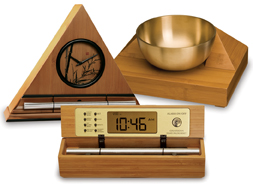 Soothing chime and gong alarm clocks by Now & Zen, Inc. Now & Zen, Inc.
1638 Pearl Street
Boulder, CO 80302
(800) 779-6383
Posted in Bamboo Chime Clocks, Now & Zen Alarm Clocks, Well-being
 satisfy your spirit by creating a sleep oasis Create your sleep oasis with a mind/spirit component to satisfy your spirit. Discourage thoughts from continuing to churn at night by eliminating any sources of distraction, keeping work and stimulating entertainment (like TV and laptops) out of the bedroom. Rather than a thriller novel, grace the bedside with divinity: A small statue of the Buddha, Ganesha, Jesus, a revered saint, or other sacred figure can serve as a grounding, comforting presence, especially when paired with a natural element — a smooth stone, an acorn, a bowl of white sand. Alternatively, consider creating a bedside altar that honors the people you love, complete with small framed photographs and personal artifacts that reflect their spirit. With body, mind, and spirit thus cradled and protected, you can enter into sleep peaceful and complete.
Falling asleep is a natural progression into your body’s unconscious state. Using a Now & Zen alarm clock will progressively wake you up, mimicking your body’s natural waking process. Now & Zen alarm clocks come in a variety of styles to best compliment your sleep oasis.
Now & Zen Alarm Clocks adapted from Body + Soul Magazine, February 2006
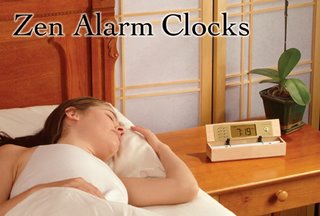 Alarm Clocks to Create a Sleep Oasis in Your Bedroom Now & Zen’s Clock Store
1638 Pearl Street
Boulder, CO 80302
(800) 779-6383
Posted in Natural Awakening, sleep, Sleep Habits, Well-being
 It's exquisite sounds summon your consciousness out of your meditative state with a series of subtle gongs. Once you experience the Zen Timepiece's progressive tones, you'll never want to meditate any other way. It serves as the perfect meditation timer. Set aside 30 minutes, preferably at the end of the day, to try this Naikan practice.
Sitting comfortably, with eyes closed, take a few moments to bring attention to your breath, mantra, or any other technique that you normally use to center yourself. When you feel settled, ask yourself this series of questions:
What have I received today?
Be specific and reflect on as many things as you can recall. It can be something as simple as your partner’s smile, the sound of a bird singing at dawn, the driver who let you merge into the crowded freeway. Remember, the motivation or attitude of those who gave you something is not the issue. Maybe you were offered lunch because you showed up at lunchtime, not because your friend made a personal effort to make you lunch. The fact is, you were fed, and you can feel gratitude for that. The mere fact that you benefited from someone’s actions is all that is needed to cultivate gratitude.
Notice which of these things you did not appreciate as they happened. Can you recall what was taking your attention when one of these acts of grace occurred? Were you stuck in problem-solving mode, thinking of your to-do list, or making judgments?
We often live as if the world owes us. As you reflect on what you have been given today, you will likely see that, if anything, you owe the world an insurmountable debt. This insight is more than merely humbling; you may find yourself feeling a deeper sense of gratitude and a natural desire to be generous in serving others.
What have I given today?
 This unique "Zen Clock" features a long-resonating acoustic chime that brings the meditation session to a gradual close, preserving the environment of stillness while also acting as an effective time signal. Go through the day’s events in the same way, but this time notice what you have given to others. Be as specific and concrete as possible. As above, your motivation is irrelevant. What did you actually do? It may have been as simple as feeding your cats, washing the breakfast dishes, or sending a friend a birthday card. You may find that without great fanfare you contribute to the well-being of many people and animals—you make a positive difference to the planet.
What difficulties and troubles did I cause today?
Again, be specific. Don’t overlook the seemingly insignificant. Your list may include things like “I backed up traffic while looking for a place to park” or “I chased the cats off the lounge chair so I could sit there.” This question is often the hardest, but its importance cannot be overstated. It may bring up feelings of remorse, but its primary purpose is to provide a more realistic view of your life.
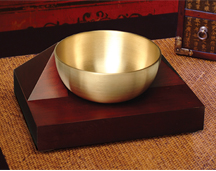 Now & Zen’s mission is to participate in the emerging movement in society toward a more spiritually focused lifestyle. In general, we are all too aware of how others cause us inconvenience or difficulty, but rarely do we notice when we are the source of inconvenience. And if we do, we usually brush it aside as an accident, not that big a deal, or simply something we didn’t mean to do. We cut ourselves a huge length of slack! But seeing how you cause others difficulty can deflate your ego while reminding you again of the grace by which you live.
These questions provide the framework for reflecting on all your relationships, including those with family, friends, co-workers, partners, pets, and even objects. You can reflect on the events of one day, a specific person over the course of your relationship, or a holiday visit with family.
Remember, what makes this a meditative practice is that you are not analyzing your motivations or intentions; you are not interpreting or judging. You are simply shifting your attention from self-centered thinking to seeing things as they are, and as all yoga traditions point out, in seeing, there is wisdom and liberation.
adapted from Yogajournal.com by By Frank Jude Boccio
Although meditation can be done in almost any context, practitioners usually employ a quiet, tranquil space, a meditation cushion or bench, and some kind of timing device to time the meditation session. Ideally, the more these accoutrements can be integrated the better. Thus, it is conducive to a satisfying meditation practice to have a timer or clock that is tranquil and beautiful. Using a kitchen timer or beeper watch is less than ideal. And it was with these considerations in mind that we designed our digital Zen Alarm Clock and practice timer. This unique “Zen Clock” features a long-resonating acoustic chime that brings the meditation session to a gradual close, preserving the environment of stillness while also acting as an effective time signal. The Digital Zen Clock can be programmed to chime at the end of the meditation session or periodically throughout the session as a kind of sonic yantra. The beauty and functionality of the Zen Clock/Timer makes it a meditation tool that can actually help you “make time” for meditation in your life.
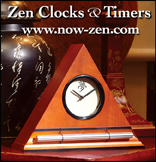 Now & Zen’s mission is to participate in the emerging movement in society toward a more spiritually focused lifestyle.
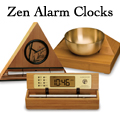 Rather than an artificial recorded sound played through a speaker, the Zen Clock features an alloy chime bar similar to a wind chime. Now & Zen – The Meditation Timer Shop
1638 Pearl Street
Boulder, CO 80302
(800) 779-6383
Orders@now-zen.com
Posted in intention, Meditation Timers, Meditation Tools, mindfulness practice
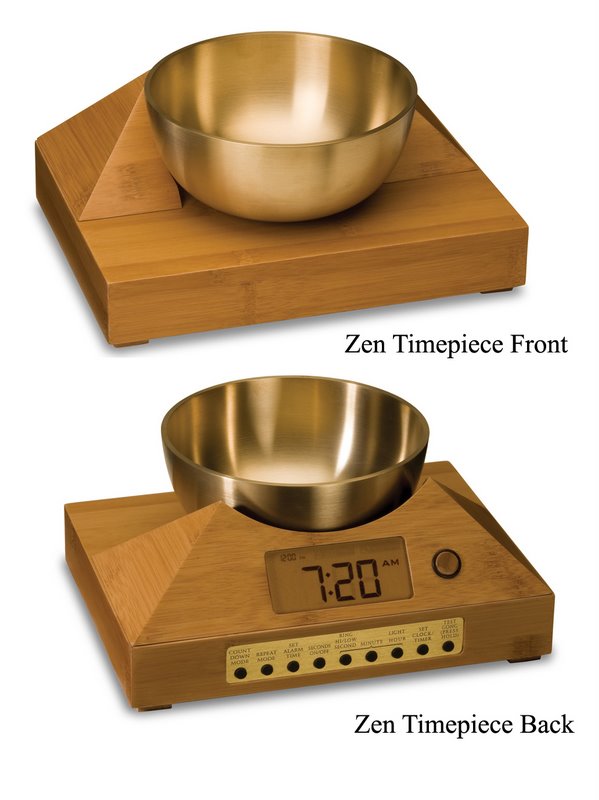 gong and chime alarm clocks are the best gentle alarm clocks Boulder, Colorado—an innovative company has taken one of life’s most unpleasant experiences (being startled awake by your alarm clock early Monday morning), and transformed it into something to actually look forward to. “The Zen Alarm Clock,” uses soothing acoustic chimes that awaken users gently and gradually, making waking up a real pleasure.
What makes this gentle awakening experience so exquisite is the sound of the natural acoustic chime, which has been tuned to produce the same tones as the tuning forks used by musical therapists. According to the product’s inventor, Steve McIntosh, “once you experience this way of being gradually awakened with beautiful acoustic tones, no other alarm clock will ever do.”
 change your alarm clock, Now & Zen Alarm Clock Shop - Boulder, CO Now & Zen – The Gong & Chime Alarm Clock Store
1638 Pearl Street
Boulder, CO 80302
(800) 779-6383
Posted in Bamboo Chime Clocks, Now & Zen Alarm Clocks
 It's exquisite sounds summon your consciousness out of your meditative state with a series of subtle gongs. Once you experience the Zen Timepiece's progressive tones, you'll never want to meditate any other way. It serves as the perfect meditation timer. Think meditating requires the patience, dedication, and endless free time of a Tibetan monk? Here are three simple ways to work this mind-calming, heart-strengthening discipline into your daily routine, no matter how confirmed a type A you are.
Walking Meditation Focus on your breathing; count your steps. Become aware of how your feet and legs move. Celebrate each movement as a miracle of silent communication between your brain and your body.
Mindfulness Concentrate all your energy on whatever you’re doing now, even something as mundane as washing dishes. Consider each element of the activity as if you were moving in slow motion. If other thoughts interrupt, gently bring your mind back to your task.
Mantra In Sanskrit, man means mind and tra means deliverance. Repeating a mantra–a word, phrase, or sound–creates a sound vibration that could deliver you from worldly cares. Choose a prayer, word, or sound that invokes a spiritual feeling. Sit comfortably and breathe deeply as you chant it silently.
adapted from Prevention by By Sara Altshul
Although meditation can be done in almost any context, practitioners usually employ a quiet, tranquil space, a meditation cushion or bench, and some kind of timing device to time the meditation session. Ideally, the more these accoutrements can be integrated the better. Thus, it is conducive to a satisfying meditation practice to have a timer or clock that is tranquil and beautiful. Using a kitchen timer or beeper watch is less than ideal.
And it was with these considerations in mind that we designed our digital Zen Alarm Clock and practice timer. This unique “Zen Clock” features a long-resonating acoustic chime that brings the meditation session to a gradual close, preserving the environment of stillness while also acting as an effective time signal. The Digital Zen Clock can be programmed to chime at the end of the meditation session or periodically throughout the session as a kind of sonic yantra. The beauty and functionality of the Zen Clock/Timer makes it a meditation tool that can actually help you “make time” for meditation in your life.
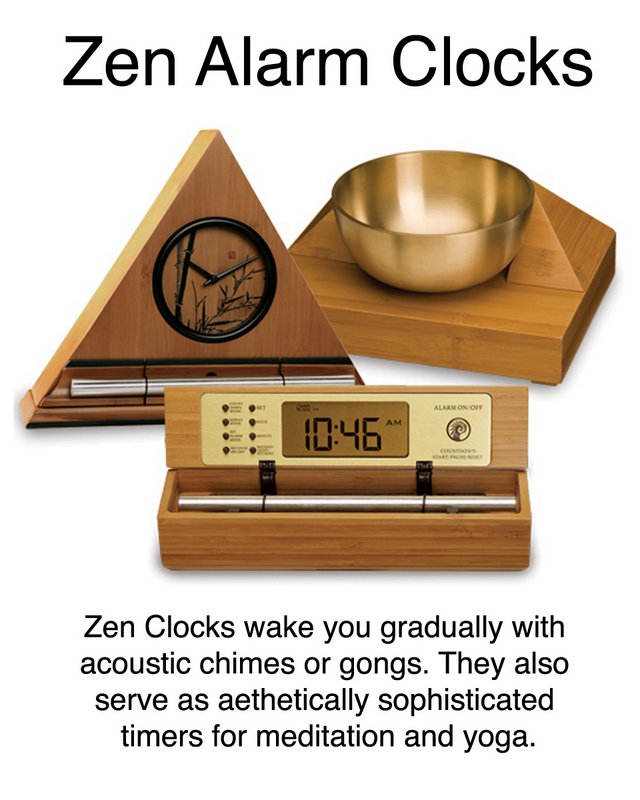 This unique "Zen Clock" features a long-resonating acoustic chime that brings the meditation session to a gradual close, preserving the environment of stillness while also acting as an effective time signal.
Posted in Bamboo Chime Clocks, Meditation Timers, Meditation Tools, mindfulness practice
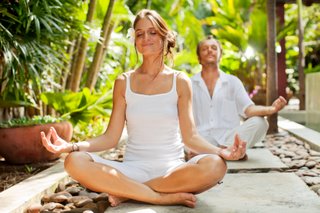 is yoga enough? When it came to the fitness benefits yoga can or can’t provide, yoga teacher John Schumacher had heard it all. A student of B. K. S. Iyengar for 20 years and founder of the Unity Woods studios in the Washington, D.C. area, Schumacher was convinced yoga provides a complete fitness regime. But many people, even some of his own students, disagreed. Yoga might be good for flexibility or relaxation, they’d say, but to be truly fit, you had to combine it with an activity like running or weight lifting.
Schumacher just didn’t buy it.
He knew three decades of yoga practice—and only yoga practice—had kept him fit. He didn’t need to power walk. He didn’t need to lift weights. His fitness formula consisted of daily asanas (poses) and pranayama (breathwork). That’s all he needed.
Four years ago at age 52, Schumacher decided to prove his point. He signed up for physiological testing at a lab in Gaithersburg, Maryland. As he expected, Schumacher tested near the top of his age group for a variety of fitness tests, including maximum heart and exercise recovery rates. His doctor told him that he was in excellent physical condition and estimated that Schumacher had less than a one percent chance of suffering a cardiac event. “I’ve always maintained that yoga provides more than adequate cardiovascular benefits,” says Schumacher. “Now I have the evidence that regular yoga practice at a certain level of intensity will provide you with what you need.”
Evidence of yoga’s ability to bolster fitness, however, goes well beyond Schumacher’s personal experience. Yoga Journal’s testing of three yogis also yielded impressive results. Even physiologists who don’t do yoga now agree that the practice provides benefits well beyond flexibility and relaxation. Recent research—though preliminary—shows that yoga may also improve strength, aerobic capacity, and lung function. If you practice yoga, you already knew that. But if, like Schumacher, you’ve been told by friends, family, doctors, or even other yoga students that you need to add some power walking for your heart or strength training for your muscles, here’s evidence that yoga is all you need for a fit mind and body.
Why Yoga Works
Exactly how does yoga build fitness? The answer you get depends on whom you ask. Robert Holly, Ph.D., a senior lecturer in the Department of Exercise Biology at U. C. Davis and one of the researchers on the U. C. Davis study, says that muscles respond to stretching by becoming larger and capable of extracting and using more oxygen more quickly. In other words, side benefits of flexibility include increased muscle strength and endurance.
“My own belief is that the small but significant increase in maximal oxygen capacity was due to an increase in muscle endurance, which allowed the subjects to exercise longer, extract more oxygen, and reach an increased maximal oxygen uptake,” says Holly.
Then there’s the pranayama theory. Birkel suspects that yoga poses help increase lung capacity by improving the flexibility of the rib area, shoulders, and back, allowing the lungs to expand more fully. Breathwork further boosts lung capacity—and possibly also VO2max—by conditioning the diaphragm and helping to more fully oxygenate the blood.
Birkel, Dina Amsterdam, and others are also quick to point out that Suryanamaskar (Sun Salutations) and other continuously linked poses increase the heart rate, making yoga aerobically challenging. And many yoga poses—particularly standing poses, balancing poses, and inversions—build quite a bit of strength because they require sustained isometric contractions of many large and small muscles. Of course, holding the poses longer increases this training effect.
Finally, yoga tunes you into your body and helps you to better coordinate your actions. “When you bring your breath, your awareness, and your physical body into harmony, you allow your body to work at its maximum fitness capacity,” says Dina Amsterdam. “Yoga class is merely a laboratory for how to be in harmony with the body in every activity outside of yoga. This improved physical wellness and fluidity enhance not just the physical well-being but also permeate all levels of our being.”
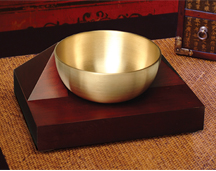 Yoga Timer with Tibetan Singing-Bowl Use our unique “Zen Clock” which functions as a Yoga Timer. It features a long-resonating acoustic chime that brings your meditation or yoga session to a gradual close, preserving the environment of stillness while also acting as an effective time signal. Our Yoga Timer & Clock can be programmed to chime at the end of the meditation or yoga session or periodically throughout the session as a kind of sonic yantra. The beauty and functionality of the Zen Clock/Timer makes it a meditation tool that can actually help you “make time” for meditation in your life. Bring yourself back to balance.
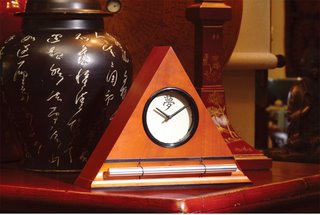 yoga chime timers and clocks Now & Zen’s Yoga Timer Shop
1638 Pearl St.
Boulder, CO 80302
(800) 779-6383
Adapted from Yoga Journal.com by Alisa Bauman stays fit through yoga, running, and fitness ball workouts.
Posted in yoga, Yoga Timer, Yoga Timers by Now & Zen
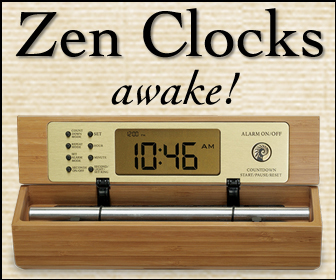 peaceful alarm clock with chime Zen Alarm Clock Review
“This is the most perfect alarm clock I have ever owned or operated. This particular alarm clock doesn’t look like any others alarm clock available on the market! Basically, it is what it claims to be, a soothing Alarm Clock, I would recommend it simply because a its functions are real acoustic chimes! If you’re sick and tired of setting your clocks over and over… try this one. You will not be disappointed. You’ll have a much better start to your day, as well as create more peace and pleasure around you!
The dimension is excellent; not too large, not too small. Numbers are great and large, and never noticeable when trying to sleep through the night. Additionally the numbers are just right, enough to read out the screen for those who, like me, wakes up during the night time and want to quickly check on the time. The design and style are elegant, I really like the slight angle when it’s sitting flat. And also the wood case is an added bonus wonderfully created and will protect it perfectly during travel.
Sound quality is great because it is acoustic! The chime alarm starts slow and then increases to chime every 4 seconds. This is not the loudest alarm that I have heard, and so if you are the type that needs some extra volume to wake up it isn’t really the one for you.“
This chime alarm clock runs on batteries and is a much needed feature for a alarm clock – since we have frequent electrical power outages. I prefer that the alarm clock comes with an indicator light for when the battery runs low. It’ll never stop functioning without having warning me having first.
I would recommend this particular alarm clock to those people who are searching for a good, simple alarm clock. You’ll have a better start to your worktime!
Zen Alarm Clock Review
The perfect alarm clock I have ever owned or operated. This particular alarm clock looks like any others available on the market, But, you will dsicover the big difference once you have it. There’s a lot to like relating to this alarm for the cost. Basically, it is what it claims to be, Alarm Clock, I would recommend it simply because a lot of its functions can be modified to meet your requirements or choices. If you’re sick and tired of setting your clocks over and over… try this one. You will not be disappointed. You’ll have a much better start to your day, as well as create more peace and pleasure around you!
The dimension is excellent; not too large, not too small. Numbers are great and large, and never noticeable when trying to sleep through the night. Additionally The Numbers is just right, enough to read out the screen for those who, like me, wakes up during the night time and want to quickly check on the time. The design and style are elegant, I really like the slight angle when it’s sitting flat. And also the case is an added bonus wonderfully created and will protect it perfectly during travel.
Sound quality is great not audiophile, however this is just an alarm clock. I do not expect to have much from a small little clock. It is a lot more than good for alarm purposes, yet. The alarm starts slow and then increases. This is not the loudest alarm that I have heard, and so if you are the type that needs some extra volume to wake up it isn’t really the one for you.
When you click the snooze switch it’ll snooze for 10 min’s. An additional feature I have grown to adore is when you immediately hit the snooze once again it’ll include another 10 min’s for each time you hit it. The display will reveal your total snooze time. This will come in handy if you had excellent inspiration at night to say get up early and go workout, but when morning comes you decide you’d rather get to sleep.
As well the battery is a good feature for keeping your time even if you have a electrical power outage. I prefer that the alarm clock comes with an indicator light for when the battery runs low. It’ll never stop functioning without having warning me having first.
I would recommend this particular alarm clock to those people who are searching for a good, simple alarm clock. You’ll have a better start to your worktime!
Posted in Bamboo Chime Clocks, Natural Awakening
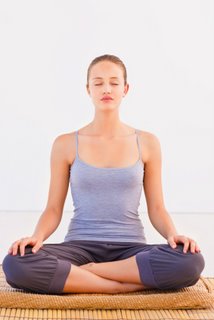 It's exquisite sounds summon your consciousness out of your meditative state with a series of subtle gongs. Once you experience the Zen Timepiece's progressive tones, you'll never want to meditate any other way. It serves as the perfect meditation timer. Available in 5 wood styles, including bamboo. Meditation as medication.
A federally funded study on hypertension conducted in West Oakland yielded positive results for the practitioners of transcendental meditation, a technique used to relax the body and the mind — and much, much more, say hardcore adherents.
Findings of the study were published Friday in the American Journal of Hypertension, a publication of the American Society of Hypertension Inc. The study was the work of a medical team led by Dr. Frank Staggers, a longtime Oakland physician who now works as a senior detox physician at the Haight Ashbury Free Clinic in San Francisco. Research for the project was conducted over a period of 10 years, starting in 1994.
The study comprised 150 people, whose average age was 49, who were divided into three separate groups and used separate techniques to try to reduce stress levels and lower blood pressure. One group practiced meditation, another used progressive muscle relaxation, and the third used conventional health and education techniques to lower blood pressure.
“I was working at the West Oakland Health Center in the 1980s when I made my first observations during the course of my patient examinations,” Staggers said. “I told my patients with hypertension to close their eyes, relax and take deep breaths.”
When Staggers began to notice a difference in the stress levels of his patients, he started digging a little deeper into relaxation techniques.
He contacted Dr. Robert Schneider, a colleague from Maharishi International University in Fairfield, Iowa, and the two put together a research team and sent a funding proposal to the National Institutes of Health. The NIH responded with a grant from its national Center for Complementary and Alternative Medicine.
Blood pressure, which is disproportionately high among African Americans, was monitored for a year in all three testing categories, Staggers said.
Transcendental meditation was chosen over other practices, such as Zen and religious meditation, because there were varying techniques and not nearly as much research data as had been collected on TM over the years.
 It features a long-resonating acoustic chime that brings your meditation or yoga session to a gradual close, preserving the environment of stillness while also acting as an effective time signal. “These techniques had a long track record and had been studied at some of the largest research universities in the nation, but they had never been studied with respect to treating disease,” Staggers said.
“As a practicing physician, I didn’t want to take a technique that no one has ever used, because you don’t know what will happen. TM has been studied since the 1960s.”
Of the three groups that participated in the study, meditation practitioners witnessed the reduction of 6 millimeters in diastolic pressure and a 3-millimeter drop in systolic blood-pressure readings.
There was also a 23 percent reduction in that group in the use of antihypertensive medications used to treat the disease.
Staggers said meditation has shown promise in helping reduce the symptoms of numerous physical and mental ailments, including asthma, depression, anxiety, cancer, diabetes and arthritis. He also said the technique can be an effective tool in the fight against drug dependency and addiction.
Joyce Muse-Harris, a nurse practitioner and Oakland resident who suffers from hypertension, took part it the study and heaps praise on how meditating for 20 minutes twice a day affects her health and outlook.
“I wanted to be in the meditation program because I’ve always believed in alternative medical techniques and haven’t always agreed with the techniques used in Western medicine,” she said.
The meditation sessions helped her reduce stress and “get a handle on some of the things that were happening in my life,” she said.
Muse-Harris used the techniques to deal with a colleague with whom she had a conflict. “After doing the meditation for a while, that person didn’t bother me anymore, because I decided I would not add to their stress,” she said.
Muse-Harris has gotten better at the technique and says she can now meditate just about anywhere — riding in a car or even on a BART train.
“At first it was difficult to do, but if you sit quietly, and let your mind relax, it will start running through all the errands you have to do, a shopping list, but if you don’t fight, those things fade away and your mind becomes clear,” she said.
Muse-Harris still takes hypertension medication but says the meditation provides her with an inner calm that keeps a lid on stressful reaction to challenging situations.
I must admit to a little skepticism about some the claims made by TMers over the years, particularly their description of mental-flying when a person achieves the highest state of the art.
The “yogic fliers” who sit in the lotus position and begin to hop around on foam cushions once they’ve reached a higher mental state always looked pretty suspicious to me, but this is a bit different.
If calming the mind in order to heal the body can be achieved through meditation instead of medication, I say go for it.
adapted from Sfgate.com by Chip Johnson
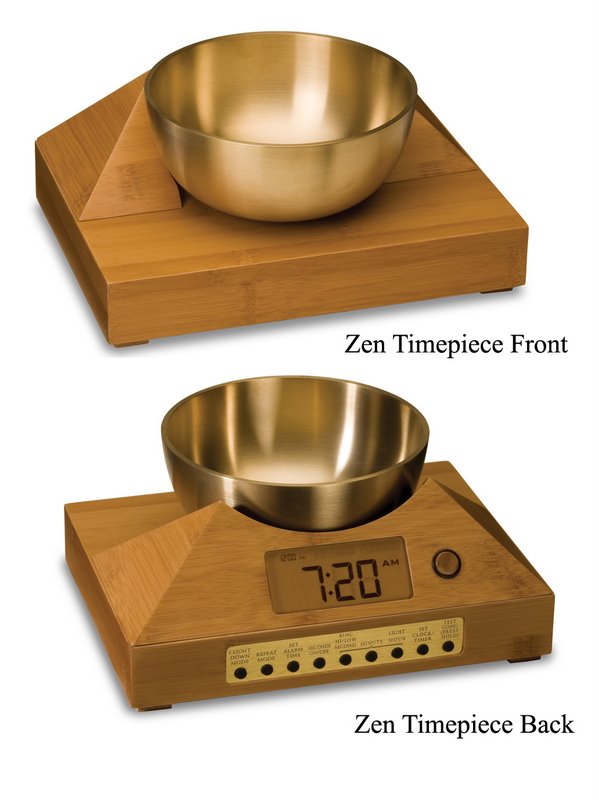 It features a long-resonating acoustic chime that brings your meditation or yoga session to a gradual close, preserving the environment of stillness while also acting as an effective time signal. Now & Zen – The Singing Bowl Meditation Timer Store
1638 Pearl Street
Boulder, CO 80302
(800) 779-6383
orders@now-zen.com
Posted in Bamboo Chime Clocks, Meditation Timers, Meditation Tools, mindfulness practice
 Wake up with gradual, beautiful acoustic chimes. The Zen Alarm Clock transforms your mornings and gets you started right, with a progressive awakening When you’re awake, the electrical activity in your brain is varied — slow, fast, strong, faint. But when you fall asleep, your brain waves slow and synchronize. You initially enter a doze, known as Stage 1 sleep, from which you can be easily awakened. Falling asleep should take at least 5 minutes; tonight it took you 2. According to experts, that’s a sign of a problem — it means you’re overtired. “One of the major misconceptions is that it’s a good thing if you fall asleep as soon as your head hits the pillow,” says Kathryn Lee, Ph.D., a sleep specialist and nursing professor at the University of California at San Francisco. “Actually, it means you’re a sleep-deprived person.”
Over the next hour or so, you transition into increasingly intense slumber. Next comes Stage 2. This is “baseline” sleep — over the course of the night you’ll spend half your time in this state, but not all at once. Right now you spend just 15 to 20 minutes here before entering Stages 3 and 4, known as slow-wave sleep, the deepest and most restorative kind. You’re breathing evenly and slowly, the very picture of serenity. Then everything changes. You shift into REM (rapid eye movement) sleep. Your brain emits a cacophony of electrical signals — it’s as active as when you are awake. But you’re not awake, of course. REM sleep is the phase when most dreaming occurs. Your eyes dart back and forth, and the muscles in your arms and legs are paralyzed. Sleep researchers believe this inertia may have evolved to prevent us from acting out our dreams.
The time between now and your alarm — the last few hours of sleep — may be especially important: Recent research suggests that this is when your brain rehearses what you learned the previous day. And “sleeping on it” does more than help you remember new things — it may make you better at them. In a 2002 study, scientists asked people to type a sequence of numbers over and over. The volunteers got faster with practice, then plateaued. Tested later in the day, they performed no better, but the next day, after the benefit of a good night’s sleep, they sped up an additional 20 percent. Curtailed sleep eliminates those sorts of gains.
So as for that cake-decorating class you took yesterday: Right now, your brain is reviewing how to color the icing and choose the appropriate nib for the pastry bag. Thanks to tonight’s sleep, when you bake a cake for your mom’s party, you’ll fashion sugary roses more expertly than you did in class. “It will feel sort of magical to you, but your performance will have improved,” says Robert Stickgold, Ph.D., a Harvard Medical School neuroscientist who coauthored the typing study.
 Wake up refreshed, love your alarm clock, transform your mornings with The Zen Alarm Clock's progressive awakening with gentle chimes. One 90- to 110-minute sleep cycle ends and the next begins. Each of the following cycles will contain a different proportion of light, medium, deep, and REM sleep.
Although experts don’t yet fully understand what sleep is for, they know it is crucial: Rats normally live 2 years or more, but when deprived of sleep they die within 3 weeks. If you stay awake for 24 hours straight, you will involuntarily begin undergoing regular bursts of “microsleep” — 2- to 3-second intervals in which you essentially lose consciousness. An Australian study published in the journal Nature found that people kept awake for 28 hours did as poorly on a hand-eye-coordination test as did people who were legally drunk (having a blood alcohol concentration of 1.0).
But you don’t have to pull an all-nighter to feel the effects of sleep loss. The past few nights, you’ve stayed up late — to work, pay bills, help your husband pack for a business trip. You think you do fine on 6 hours’ sleep, but you’re actually accumulating a “sleep debt.” Recent research shows that spending just a couple of hours less in bed each night for a week or two — basically your normal schedule — lowers your spirits. “Sleep deprivation has significant impacts on mood in healthy individuals,” says J. Todd Arnedt, Ph.D., a University of Michigan sleep specialist. “People get more depressed; they may get more anxious.” Sleep loss also slows your reflexes and impairs your memory, judgment, and mental acuity. In a landmark 2003 University of Pennsylvania study, people who were limited to 6 hours of sleep per night for 2 weeks did significantly worse on tests of alertness and reasoning than people who got their full 8 hours.
But get this: The subjects in the Penn study had no idea how impaired they were. They reported an initial increase in sleepiness, but as time wore on they did not complain of additional exhaustion, though their test scores continued to decline. “One of the first things that goes in our brain is our insight,” says Joyce Walsleben, Ph.D., a psychologist at New York University’s Sleep Disorders Center. “A sleepy person generally does not perceive how badly they are functioning.”
adapted from Women’s Health Magazine, by BY EMILY LABER-WARREN
Boulder, Colorado—an innovative company has taken one of life’s most unpleasant experiences (being startled awake by your alarm clock early Monday morning), and transformed it into something to actually look forward to. “The Zen Alarm Clock,” uses soothing acoustic chimes that awaken users gently and gradually, making waking up a real pleasure. Rather than an artificial recorded sound played through a speaker, the Zen Clock features an alloy chime bar similar to a wind chime. When the clock’s alarm is triggered, its chime produces a long-resonating, beautiful acoustic tone reminiscent of a temple gong. Then, as the ring tone gradually fades away, the clock remains silent until it automatically strikes again three minutes later. The frequency of the chime strikes gradually increase over ten-minutes, eventually striking every five seconds, so they are guaranteed to wake up even the heaviest sleeper. This gentle, ten-minute “progressive awakening” leaves users feeling less groggy, and even helps with dream recall.
What makes this gentle awakening experience so exquisite is the sound of the natural acoustic chime, which has been tuned to produce the same tones as the tuning forks used by musical therapists. According to the product’s inventor, Steve McIntosh, “once you experience this way of being gradually awakened with beautiful acoustic tones, no other alarm clock will ever do.”
The luxurious awakening provided by the Zen Alarm Clock is part of the growing preference for things natural—natural foods, natural fibers, and now, natural acoustic sounds. Like organic tomatoes in your salad, the organic sounds of the Zen Alarm Clock’s sweet acoustic chimes are truly a gourmet experience.
Zen Alarm Clocks, made by Now & Zen, Inc., come in a variety of shapes and sizes. The company markets its products internationally through third-party retail stores and catalogs, and also sells directly to consumers through its website and Boulder headquarters store. The company’s philosophy is expressed by its tag line: ‘quality of thought, stillness of being.’ Now & Zen’s complete line of natural lifestyle products can be seen at: www.now-zen.com, or by calling the company to request a catalog.
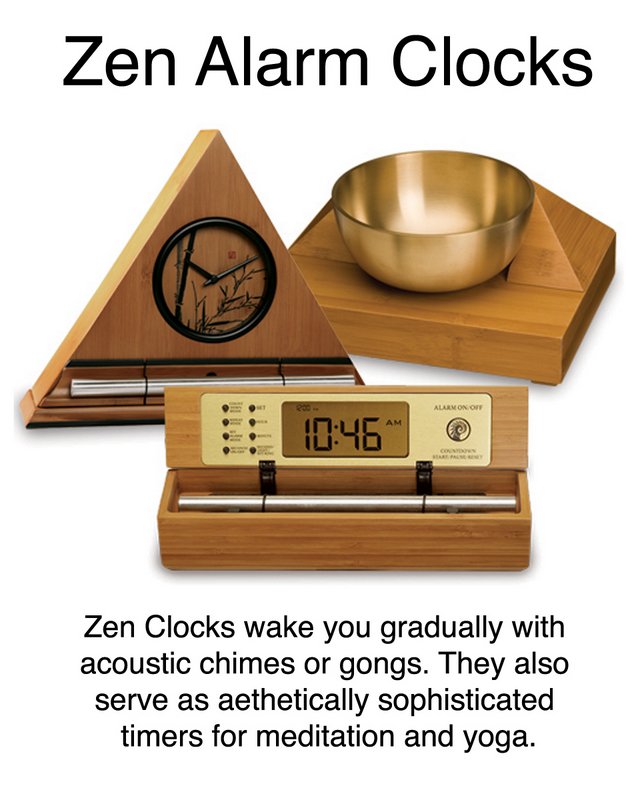 Wake up refreshed, love your alarm clock, transform your mornings with The Zen Alarm Clock's progressive awakening with gentle chimes. Now & Zen – The Alarm Clock Store with Acoustic Chimes
1638 Pearl Street
Boulder, CO 80302
(800) 779-6383
orders@now-zen.com
Posted in Bamboo Chime Clocks
 More exercise for better sleep A new study suggests regular physical activity might encourage better shut-eye: People who met national exercise guidelines reported better sleep and less daytime fatigue than those who didn’t.
The research doesn’t confirm that exercise directly leads to improved rest, and it’s possible there may be another explanation for the apparent connection between exercise and sleep. Still, the findings are mostly consistent with previous research, said Matthew P. Buman, an assistant professor of exercise and wellness at Arizona State University who’s familiar with the study.
But if you think a daily walk or jog will clear up your sleep problems, that might be a bit too optimistic.
“In general, the relationship between physical activity and sleep is moderate,” Buman said.
More than one-third of U.S. adults have trouble falling asleep at night or staying alert during the day, according to background information in the study. Inadequate sleep has been linked to depression, cardiovascular disease and other health problems.
The new study, led by researchers at Oregon State University, looked at statistics from a U.S. health survey conducted from 2005 to 2006. The researchers focused on more than 2,600 men and women — aged 18 to 85 — who measured their activity levels and answered questions about sleep.
All wore accelerometers, devices that measure physical activity, for a week.
The researchers adjusted their statistics so they wouldn’t be thrown off by unusually high or low numbers of people of certain ages, weight, health condition, smoking history or other factors.
 Wake up with gradual, beautiful acoustic chimes. The Zen Alarm Clock transforms your mornings and gets you started right, with a progressive awakening The researchers then determined how many participants met or exceeded national exercise guidelines by getting at least 150 minutes a week of moderate exercise or 75 minutes a week of vigorous exercise or a combination of both.
Those who met the guidelines were 65 percent less likely to report often feeling sleepy during the day compared to those who got less exercise. They were also 68 percent less likely to report sometimes having leg cramps and 45 percent less likely to report having trouble concentrating while tired.
The study appears in the December issue of the journal Mental Health and Physical Activity.
Buman called the finding intriguing, even if it doesn’t prove that exercise improves sleep.
If that is the case, however, the causes are unclear. Some researchers think physical activity improves sleep by helping reduce levels of stress, anxiety and depression, he said. “Others have suggested an energy conservation hypothesis, essentially saying that when you burn more calories through exercise, your body more efficiently uses the sleep period to recover. Others have suggested that exercise can modestly reduce body weight, which in turn helps people to sleep better.”
Another theory suggests that exercise helps the body deal better with the cooling down of its temperature during sleep, he said.
So should you avoid exercising before bed, as conventional wisdom suggests? The new research doesn’t look at the timing of exercise, but the study authors do note that most previous studies haven’t shown that late-night exercise disrupts sleep quality.
Study co-author Brad Cardinal, a professor of exercise science at Oregon State, said in a statement that the study is unusual because it directly measured how much exercise people got instead of relying on their memories, which can be faulty.
More information
The U.S. National Library of Medicine has details on sleep disorders.
The Zen Clock’s long-resonating Tibetan bell-like chime makes waking up a beautiful experience – its progressive chimes begin your day with grace. When the clock’s alarm is triggered, the acoustic chime bar is struck just once … 3-1/2 minutes later it strikes again … chime strikes become more frequent over 10 minutes … eventually striking every 5 seconds until shut off. As they become more frequent, the gentle chimes will always wake you up – your body really doesn’t need to be awakened harshly, with a Zen Clock you’re awakened more gradually and thus more naturally. Unlike artificial recorded sounds coming out of a tiny speaker in a plastic box, natural acoustic sounds transform your bedroom or office environment.
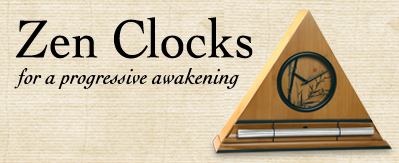 Waking up in the morning should be as pleasant as falling asleep at night. The Zen Alarm Clock's gradual, gentle awakening is transformative. Now & Zen – The Gentle Sounds Alarm Clock Store
1638 Pearl Street
Boulder, CO 80302
(800) 779-6383
orders@now-zen.com
Posted in sleep
« Previous Page — « Previous Entries
Next Entries » — Next Page »
|
|
|
|